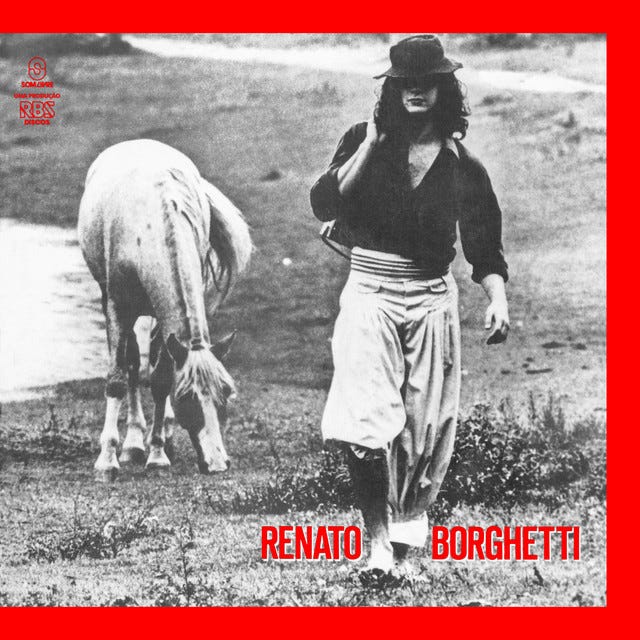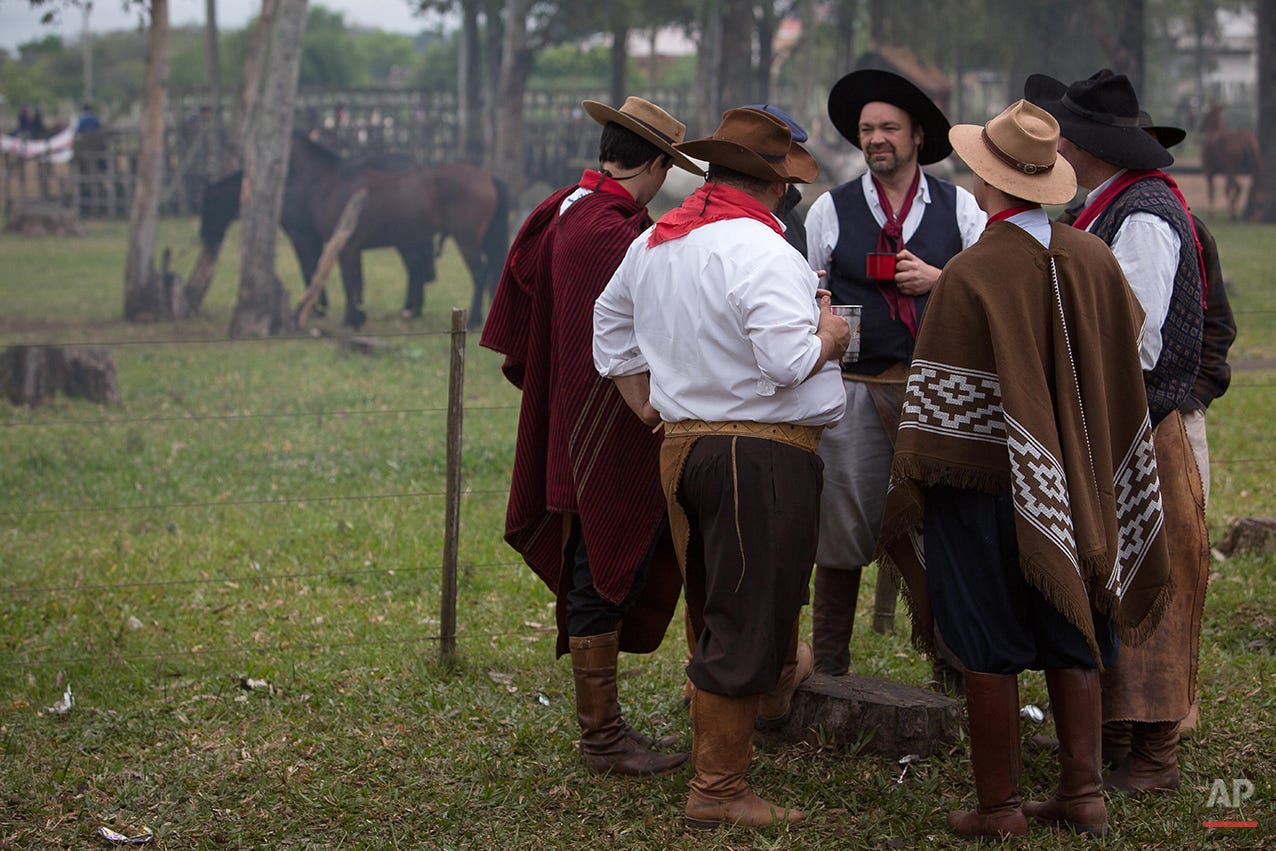Genre of the Day - Música gaúcha
Album of the Day - Gaita Ponto by Renato Borghetti (1984)
I have returned home for winter break after a lovely sendoff by the 80° weather and the lovely friends in my life in Los Angeles. Coming back to my room, I am reminded of all the things that constituted my identity in my younger years. I had a phase in high school in which I discovered Guayaki’s yerba mate, started drinking one a day, and may have gotten a few people irreversibly addicted in championing the sunnily-packaged natural energy drink. A carefully curated collection of all the flavors still sits on top of one of my dressers. I fear my heart can not physically take those cans’ 200 milligrams of caffeine at once anymore unless for dire academic reasons, but as they say, wherever you go, there you are. Even though there I am not a yerba maté drinker often anymore (and have never gotten around to drinking out of the traditional gourd), I reinvoke him for today’s genres.
Drinking yerba maté is a necessary source of energy and a pastime for the gauchos of Brazil in the southern state of Rio Grande do Sol. Música gáucha is a genre for an alternative lifestyle amongst the cattle herders of southern Brazil and dipping into adjacent regions of the Pampas lowlands in neighboring Argentina, and Uruguay. Folkloric songs, led by accordion, sing the praises of the gaúcha identity and the components of life that define it: the countryside’s assured yet hardened nature, hardy horses and fertile cows, upstanding values. These songs are composed in the form of dances, drawing upon the forms like flamenco and other Iberian dance traditions the gaúcho settlers brought to the rural reaches of these regions.
Música gaúcha can be considered a success in music revitalization, a feat considering the sheer range of Brazilian styles. As the lifestyle waned throughout the 20th century in light of urbanization, folklorists founded groups like the Movimento Tradicionalista Gaúcho and festivals like the California da Canção Nativa to celebrate and sustain gaúcho traditions. Original output gradually increased coinciding with these revival efforts, with some traditionalists keeping the vanguard instrumentation of the accordion and guitar, with others incorporating the electric guitar to draw youth interest. However articulated, gaúcho music represents a manifesto of resisting rural exodus and ranching modernization and living a little closer to the land.
Today’s album features some of the best accordion compositions my untrained ears have heard. The virtuosic accordion of “Milonga Para As Missões” carries a melancholic, yet dangerous tone, reflecting the fervor of gaúchos that makes them a cultural icon in these regions. “Llegada” sounds like the same tune as “Dedos Atareados” from the guarania album, a lovely intraregional musical moment that reminds me that connections always circle back. The sheer density of the guitars, dueling accordions, and springy syncopation of cuts like “O Sem Vergonha” and drama of “El Toro” proves the genre’s robustness: ruralness doesn’t translate to musical spareness, and maté seemingly powers musicians to electrify the accordion and guitar with hard-working hands.






Another genre featuring accordion?
Sign! Me! UP!